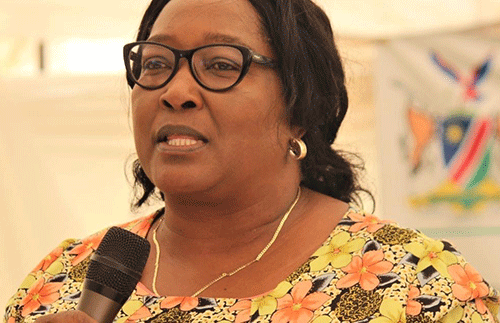ONGWEDIVA – The Oshikuku Agriculture and Training Expo was officially opened under the theme “Modernisation of Agriculture in Africa and Beyond”.
Officially opening the second edition of the expo, Deputy Minister of Agriculture, Water and Land Reform, Anna Shiweda, highlighted that the expo is a clear indication that farmers are determined to move from theory to practice to fast-track agricultural development and growth in Oshikuku constituency.
“The chosen theme of the expo is an indication to modernise agriculture in order to move the farmers from hoeing to mechanical ploughing, from traditional cereal processing technologies to mechanical hammer mills in order to lessen the burden of manual labour on farmers especially female farmers,” said Shiweda. She further maintained that by modernising agriculture, farmers are capacitated and upgraded to a production level that will enable them to produce high quality products that can have market access to lucrative national and international markets.
“The modernisation and mechanisation of agriculture in Namibia is essential and imperative if we are going to feed our growing population, close the current wide food import gap and ultimately achieve our goal of food self-sufficiency and contribute to the achievement of the UN-SDG No.2 on Zero Hunger,” she said.
Shiweda maintained that agriculture is the mother of industrialisation in the world and that it remains to be one of the key cornerstones of the Namibian economy, and the main pillar for the livelihood of some 70% of the Namibian population in terms of employment, income and food security, especially in rural areas. “We can only increase the resilience of the agriculture sector to climate change through adaptation and mitigation strategies that are based on modern and innovative agriculture techniques, such as Conversation Agriculture and Precision Agriculture,” said Shiweda. In addition, Shiweda stated that since many Namibians depend on the agriculture sector for survival, there is no doubt that the modernisation and industrialisation of agriculture will immensely contribute to the economic and social upliftment of many Namibians.



